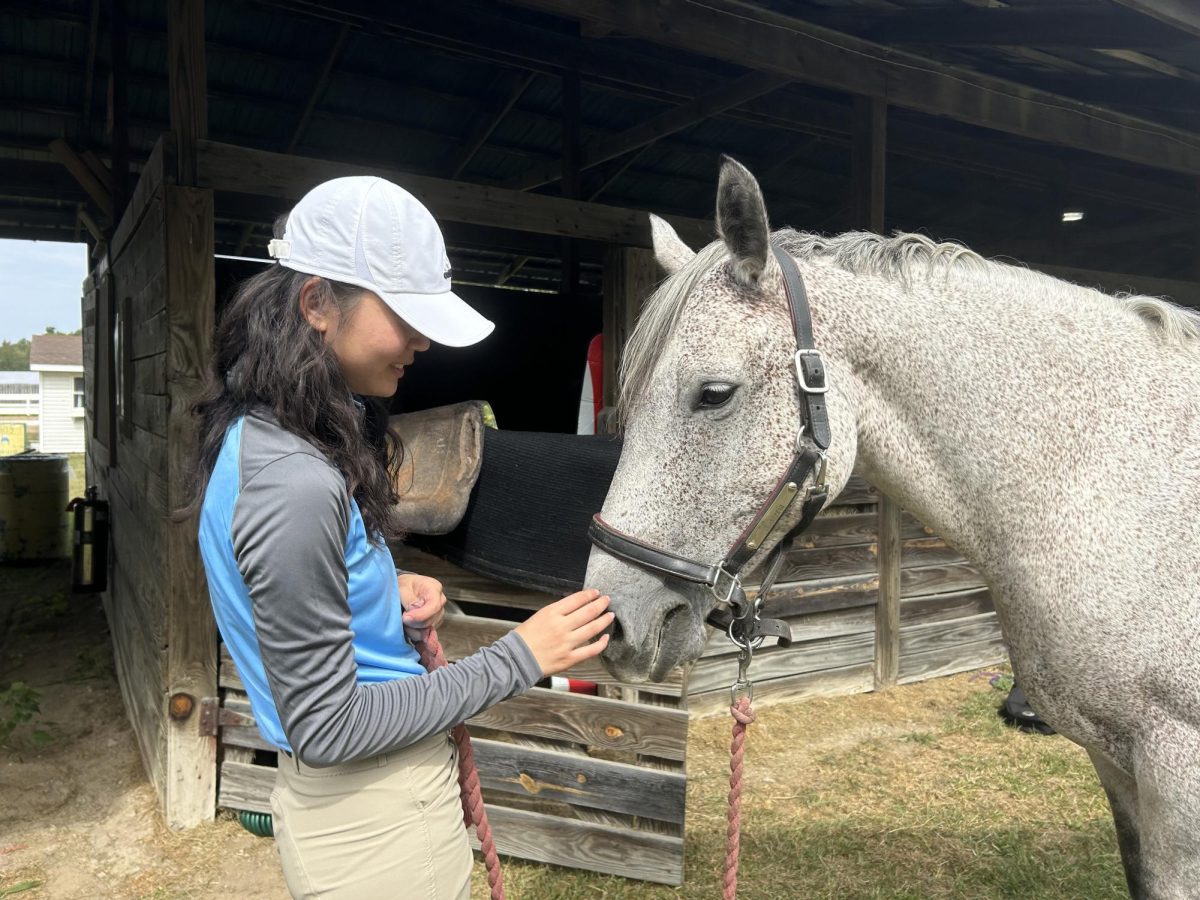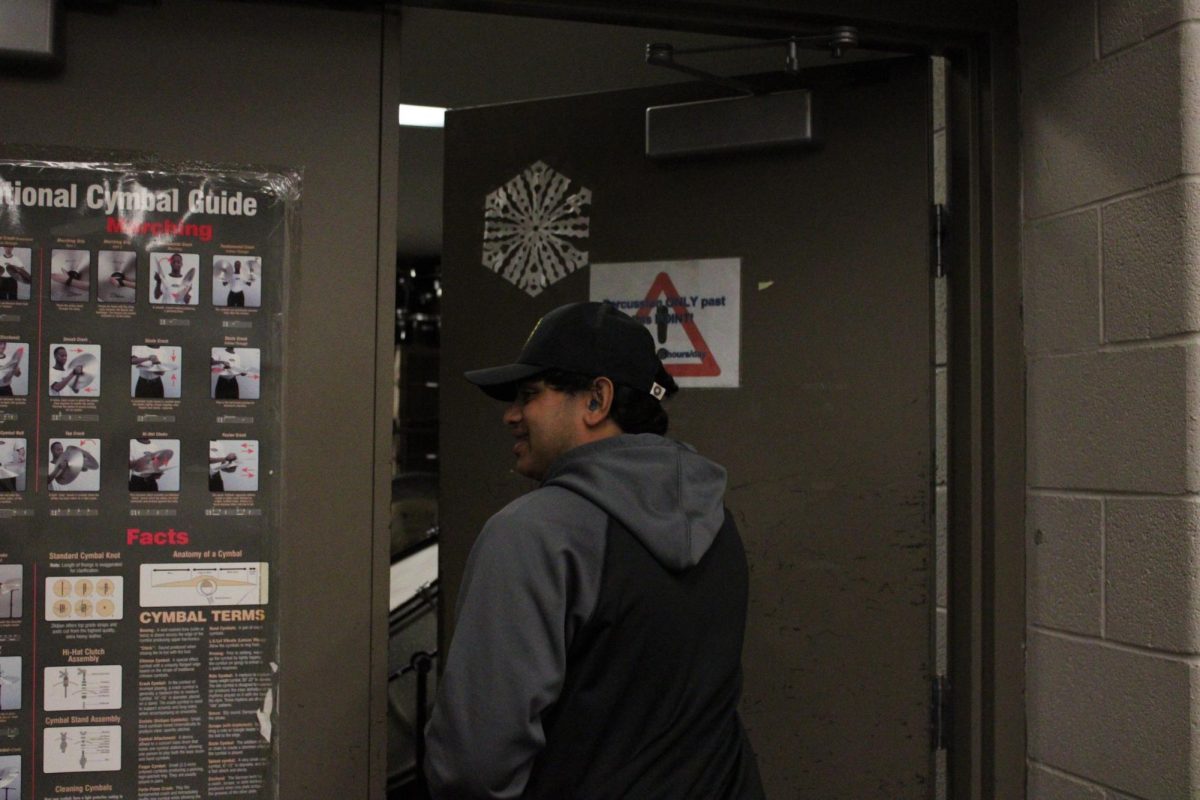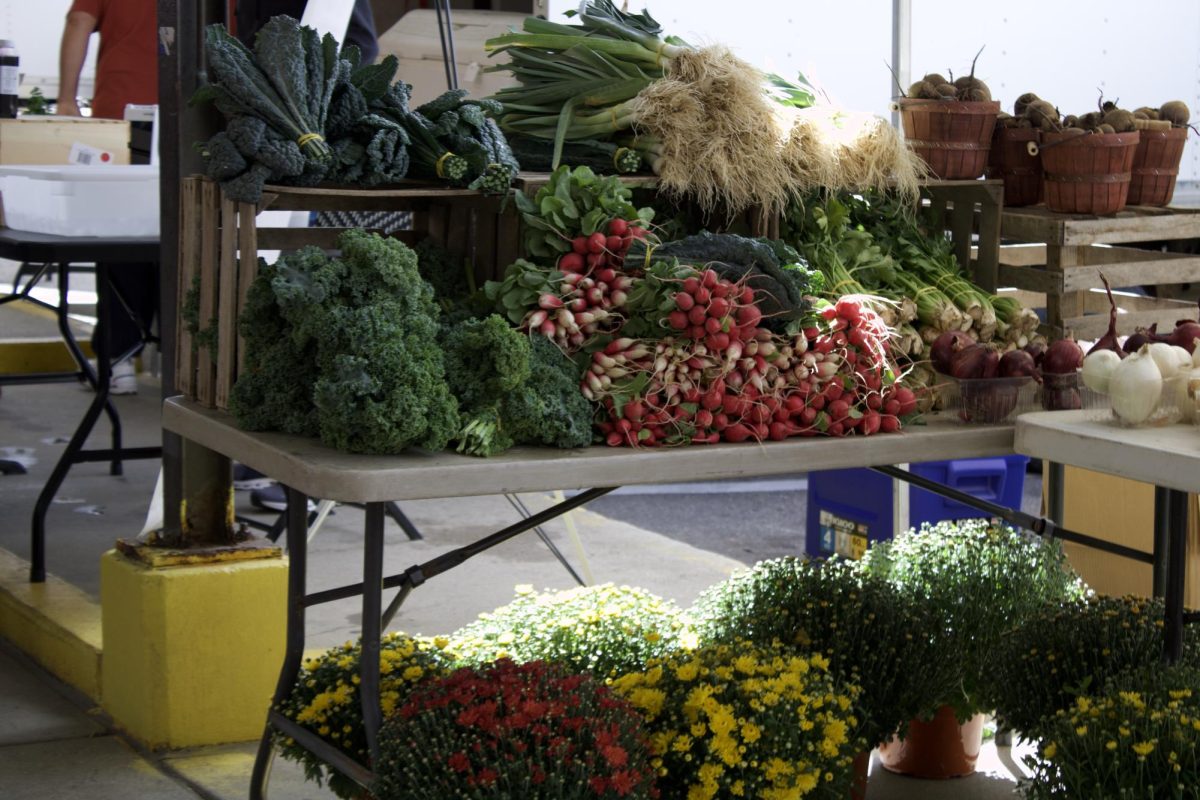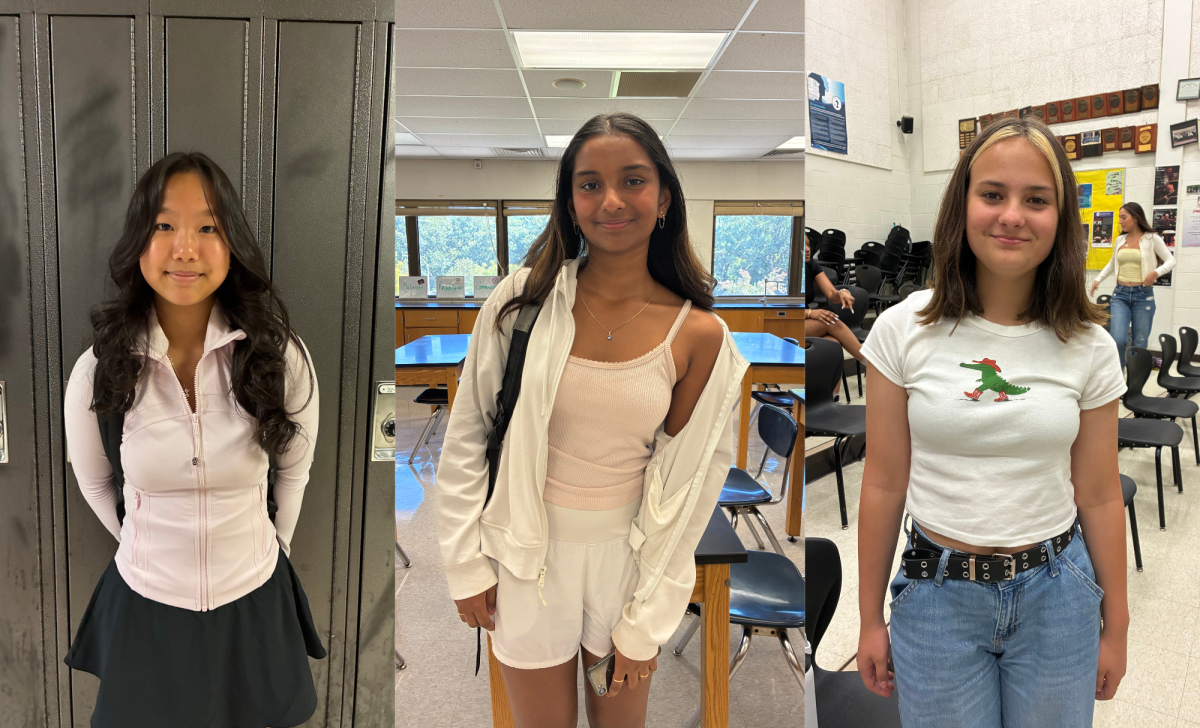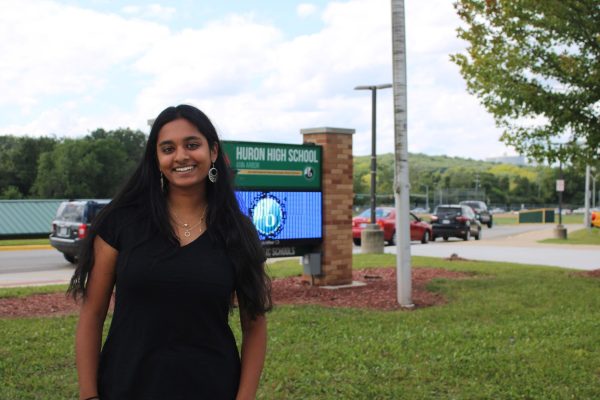AP US History (APUSH) teacher Kathryn Jones is not worried about the direction the world is heading in. In a broad sense, of course.
Jones finds that when she talks with her friends who don’t know history, they are constantly in a state of alarm over the state of the world, whether that’s with regards to elections, climate change, or foreign affairs, to name a few. But she doesn’t feel that way.
“That might be because I am dumb or lazy, or it could be that I’m enmeshed in thinking about history on a more 24/7 basis,” Jones said. “The world has been in crisis many times before. I think, oh, there’s a lot of crap happening right now that is making people crazy. But the world has made its way through knots before and come out on the other side. Humanity has survived. So maybe I’m dumb, maybe I’m lazy, or maybe I’m just a little mellowed out because of the history teaching.”
Jones started teaching in the fall of 1995 in Baltimore at an all girls public high school. She taught there for four years, and decided it was time to move back to the Midwest. She was cold-calling principals and came to Huron to look for a job. The principal at the time, Dr. Williams, took her on a tour of the school. One thing led to another, and she started working there in the fall of 1999.
She’s always taught U.S. History in one form or another, but she’s only taught APUSH for the last eight years or so.
“I have always thought, with no disrespect to other subjects, that social studies is the most important because if we do nothing else, we have to get along in the world to make it as a species,” Jones said. “Social studies courses are really all about how we get along. And not just get along, but how we thrive and do it right. [Social studies classes] were the courses I was always drawn to myself.”
One of the reasons Jones likes teaching is because it feels like a personal challenge to do it well.
“To make a classroom of 30 kids function is a skill,” she said. “And even though I’ve been teaching for a long time, my skills are still always tested in the most elementary manner. Can you make a good class? And I like that challenge.”
The other part of that “challenge” that she likes is the chance to learn about history.
“I’ve taught US history for 30 years, but I’m still learning alongside [the students],” Jones said. “I’m still challenged intellectually every day to make sure that I understand it well enough to teach it to [them]. When students write their papers or do a research project, they’re always presenting pieces of history or ways of looking at history that I hadn’t thought about before. It’s never dull.”
She loves the diversity of Huron. While she didn’t grow up in a to a diverse school, her parents were always encouraging her to “look at the bigness of the world.”
“I always like to look at class rosters before I even know anyone and just admire the diversity of names before I even meet people,” Jones said. “You can just see in the names that we are this giant smorgasbord of personalities.”
She likes the eagerness of APUSH students, and she likes teaching American history because of the distinct connection to everyone’s daily lives.
“It feels like it’s closest to heart,” she said. “It goes a long way to explain [how] our country works and doesn’t work.”
Jones has seen many changes throughout her teaching career. For one thing, when she started teaching, she would have to write out a worksheet on a piece of carbon paper and crank it through a machine to make copies. Access to resources, for teachers and students, too, has grown much more. That’s not the only change she’s seen, however.
“Teachers now are more expected to deal with larger social ills,” she said. “When I started teaching, nobody had IEPs, nobody had 504s. Teaching faculty wasn’t talking so much about equity or diversity or how to help kids who are struggling socio-economically. Teachers and schools are more expected to dedicate ourselves in a more holistic way. I think that’s a good thing, but it definitely enlarges the responsibilities of the [teachers] in a way that is overwhelming.”
She’s learned many lessons, too, in her teaching styles and perspectives.
“I’ve definitely had to learn to exercise my patience, and my sense of humor,” she said. “I’ve had to learn to be less rigid. I’ve certainly had to expand my own worldview. This should be true of everybody as you grow up, right? Your worldview is constantly expanding and you’re understanding people in new ways and learning to grow your own heart, your own sense of empathy, your own perspective on what’s important.”
When Jones started teaching, nobody was talking about gender issues or LGBTQ+ issues, for example. The world has changed very much in those areas from 1995 to 2023.
“Your ideas about other people, your ideas about gender, your ideas about sexuality, those have all been shaped shifted in one way or another,” she said. “And of course, that has real bearing on schools because schools are made up of people, and schools function best when people understand each other.”
Being a white teacher teaching U.S. History is not a piece of cake. There are a lot of difficulties and nuances that come up when talking about the tender history and foundation of the nation, as well as the inequalities and conflicts that were fundamental to the growth of the country.
“I never feel like I’m handling those topics well enough,” Jones said. “I never feel like I’m handling them with enough depth. Nobody knows what’s going on in anybody else’s head, really. Certainly not in a group of 30 heads. I’m always questioning the results [of lessons]. That might also be true for a teacher of color. In many ways, the teaching staff at Huron is not diverse enough. Other people with other experiences are going to bring other knowledge and other kinds of empathy and understanding to the table.”
Jones said reading is a great way to open up perspectives and learn about the world. She would advise students to keep reading and read widely.
“[Reading] seems so fruitful in so many ways,” she said. “My dad doesn’t like to read fiction. And to me that seems like a gap because fiction teaches you empathy. If you can get into someone else’s story, how could you not learn empathy?”
Jones also said that “getting out of town” is something else that is crucial to learning about the world.
“Go to new places, talk to people who aren’t like you, see other ways of living,” Jones said. “The world is a big world. There’s 8 billion people on the earth. There are a million ways to live. Who says that you need a job with health insurance and social security? Who says that there’s only one way to make a family? There are people living perfectly happy lives in completely other circumstances, other arrangements. The only way you know that [is to] read and get out of town.”




